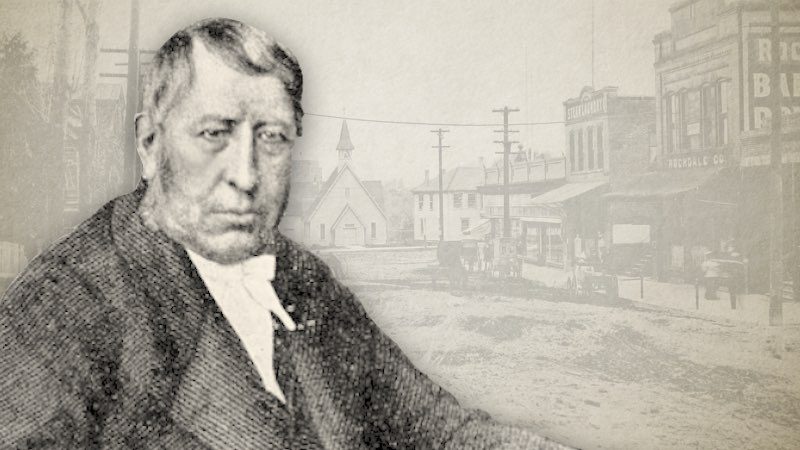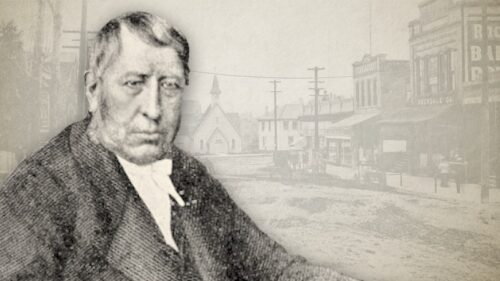-
The Prince Of Peace
Some of the points covered in this sermon: • Highlighting the three main parts of Isaiah’s prophecy concerning the Messiah, as recorded in Isaiah 9:6 • Providing a definition of “prince” and “peace” • Explaining how Christ is the Prince (or Captain) of the sinner’s health and welfare • Showing how the covenant of grace is often called a covenant of peace • Linking the covenant of peace in Ezekiel 37:26, with the covenant of peace in Hebrews 13:20,21 • Exploring the four passages where this Greek term translated “prince” appears in the New Testament • Providing a comprehensive overview on the doctrine of the “Prince of Peace”, by comparing and contrasting these four passages—Acts 3:12-15; Acts 5:29-32; Hebrews 2:9,10; Hebrews 12:1,2
-
Part 1: The Contents
In the year 1735, the First Part of this work was published, in which are considered the several passages of Scripture made use of by Dr. Whitby and others in favour of the Universal Scheme, and against the Calvinistical Scheme, in which their arguments and objections are answered, and the several passages set in a just and proper light. These, and what are contained in the following part in favour of the Particular Scheme, are extracted from Sermons delivered in a Wednesday evening's lecture. Examination of 1. Genesis 4:7 2. Genesis 6:3 3. Deuteronomy 5:29 4. Deuteronomy 8:2 5. Deuteronomy 30:19 6. Deuteronomy 32:29 7. Psalm 81:13,14 8. Psalm 125:3 9. Psalm 145:9 10. Proverbs 1:22-30 11. Isaiah 1:16-17 12. Isaiah 1:18-20 13. Isaiah 5:4…
-
The Preface
The Cause of God and TruthIn Four PartsWith a Vindication of Part IVFrom the Cavils, Calumnies and Defamations of Mr. Henry Heywood, &c.By John Gill, D.D.London, 1838 It should be known by the reader, that the following work was undertaken and begun about the year 1733 or 1734, at which time Dr. Whitby’s Discourse on the Five Points was reprinting, judged to be a masterpiece on the subject in the English tongue, and accounted an unanswerable one; and it was almost in the mouth of every one, as an objection to the Calvinists. Why do not ye answer Dr. Whitby? Induced hereby, I determined to give it another reading, and found myself inclined to answer it, and thought this was a very proper and seasonable…
-
Different Stages Of Gracious Experience
A Fragment of a Sermon "One shall say, I am the Lord's; and another shall call himself by the name of ]acob; and another shall subscribe with his hand unto the Lord, and surname himself by the name of Israel.”—Isaiah 44:5 The three characters spoken of in my text were children of God in different stages of experience: the first, in the full assurance of faith, with the enjoyment of peace and pardon in the soul; the second seemed to embrace by far the largest number of God's family—poor, fearful, staggering, doubting sinners, yet spiritual Jacobs; and the third, those who possessed some good degree of confidence, whose desire was unto the Lord, to serve him with purpose of heart. I. "One shall say, I…
-
A Kingdom Which Cannot Be Moved
Some of the points covered in this sermon: • Highlighting the seven parts of Hebrews 12:28,29 • Using the framework of sovereign grace, identifying five separate kingdoms and showing which kingdom is referred to in the text • Explaining how this kingdom cannot be moved • Showing who are the recipients of this kingdom • Explaining how the recipients of this kingdom are to have grace • Explaining what it means for the recipients of this kingdom to serve God acceptably with reverence and fear • Explaining how the recipients of this kingdom are blessed by God who is a consuming fire
-
Death Is No More A Frightful Foe
Some of the points covered in this sermon: • Highlighting the subject and theme of the hymn—Death, an encouragement to the Lord’s people in prospect of their departure from this world • Examining the teachings of Philippians 1:21, upon which the hymn is based—“For to me to live is Christ, and to die is gain.” • Making three observations upon the first clause of the verse—(1) the essence of the believer’s life; (2) the object of the believer’s life; (3) the motivation of the believer’s life • Explaining the last clause of the verse, in light of the foregoing observations • Outlining the six stanzas of the hymn, each of which suggest a reason why the believer should not fear death • Stanza 1: The…






